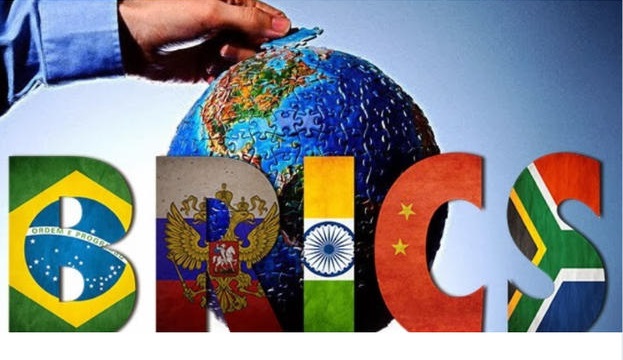BAKU, Azerbaijan, July 8. During the 17th BRICS Summit in Brazil on July 6–7, 2025, Uzbekistan was conferred partner country status within the bloc. Nine additional nations, including Kazakhstan, Saudi Arabia, Thailand, and Nigeria, joined Uzbekistan in the cooperation structure. Indonesia has attained full membership in BRICS, marking the inaugural new entrant since the group's expansion in 2024. This move aligns with Uzbekistan’s multi-vector foreign policy and simultaneously strengthens Central Asia’s presence in global formats beyond traditional transatlantic or Eurasian alliances.
Since 2022, Uzbekistan has been in the thick of it, consistently throwing its hat in the ring with BRICS+ formats, including ministerial meetings and thematic forums on sustainable development. In June 2022, the country took part for the first time in a BRICS foreign ministers’ dialogue at China’s invitation, and in 2024 it joined BRICS women’s entrepreneurship business forums.
Convergence has been manifested through bilateral engagements: China continues to be Uzbekistan’s predominant trading partner and investor, whereas India is instrumental in the nation’s digital economy and pharmaceutical landscape. Both are full members of BRICS, and their engagement has encouraged Tashkent to seek deeper integration with the platform.
In 2024, the trade winds blew favorably for Uzbekistan and China, raking in a whopping $13.1 billion. Meanwhile, Russia wasn't far behind, pocketing $10.3 billion, while India trailed with a modest $671.8 million in the mix. All in all, the BRICS nations made up more than a third of Uzbekistan’s total foreign trade pie.
Joining BRICS as a partner doesn’t mean you’re in the driver’s
seat, but it certainly opens the door to a treasure trove of
opportunities in areas like the economy, digitalization,
sustainable development, and investment. For Tashkent, this
presents a strategic avenue to navigate pivotal global dynamics
while circumventing formal coalitions or commitments that might
constrain its geopolitical maneuverability.
BRICS is currently perceived as a pivotal nexus of influence in a
post-hegemonic global landscape. Uzbekistan, historically
entrenched in bilateral engagements with China, India, and Russia,
is now positioned to leverage a consolidated political and economic
framework that integrates the interests of all three
stakeholders.
From a utilitarian perspective, the BRICS consortium presents
Uzbekistan with prospective avenues to penetrate unconventional
markets including Brazil, South Africa, Egypt, and the UAE. It
additionally serves as a conduit to the New Development Bank (NDB),
which extends capital infusions devoid of geopolitical stipulations
— a pivotal distinction from Western financial entities.
A pivotal initiative in this trajectory was the virtual
symposium conducted on May 1, 2025, featuring Uzbekistan’s Minister
of Investments, Industry, and Trade, Laziz Kudratov, alongside NDB
President Dilma Rousseff. The two parties engaged in a dialogue
encompassing critical domains of collaboration, such as extensive
infrastructural undertakings, hydrological resource governance,
sustainable and eco-friendly energy solutions, alongside the
advancement of rapid transit systems and thoroughfares, in addition
to private sector investment strategies.
The NDB executive team received an invitation to participate in the
Tashkent International Investment Forum, scheduled for June 9–12,
2025. Inaugurated by the BRICS consortium in 2015, the New
Development Bank serves as a pivotal financial mechanism,
facilitating sustainable development initiatives within emerging
economies.
In a milieu where Uzbekistan is endeavoring to amplify its
industrial export portfolio and galvanize infrastructure capital
influx, such mechanisms are gaining heightened pertinence.
Furthermore, engagement in transnational frameworks could enhance
Uzbekistan's leverage in negotiations with the EU, the US, and
various other geopolitical stakeholders.
Uzbekistan’s engagement with BRICS significantly influences the
geopolitical landscape and regional interdependencies. Central Asia
is progressively recognized as a nexus facilitating connectivity
between the Eastern hemisphere and the Global South paradigm. With
Kazakhstan and Uzbekistan integrated into the BRICS+ framework, the
region is poised to leverage an enhanced platform for resource
mobilization and the advancement of its strategic
initiatives—spanning transportation corridors, sustainable energy
solutions, and digital infrastructure development.
Per the directives from the Ministry of Energy, Uzbekistan's
electricity generation reached an impressive 81.5 billion kWh in
2024, with an increasing proportion derived from renewable energy
sources—highlighting collaborative initiatives undertaken alongside
BRICS nations.
This further solidifies Central Asia's characterization as a
self-articulated geoeconomic domain, rather than simply a locus of
external hegemony.
Uzbekistan’s partnership with BRICS isn’t a game changer but rather shows its desire to get a foot in the door of the new global economic landscape. It offers enhanced adaptability, increased accessibility, and expanded avenues for the promotion of national objectives—without obligatory commitments, yet with a vision of strategic aspirations. In a multipolar geopolitical landscape, Tashkent is strategically opting to broaden its strategic frontiers rather than confine itself within parochial boundaries.







